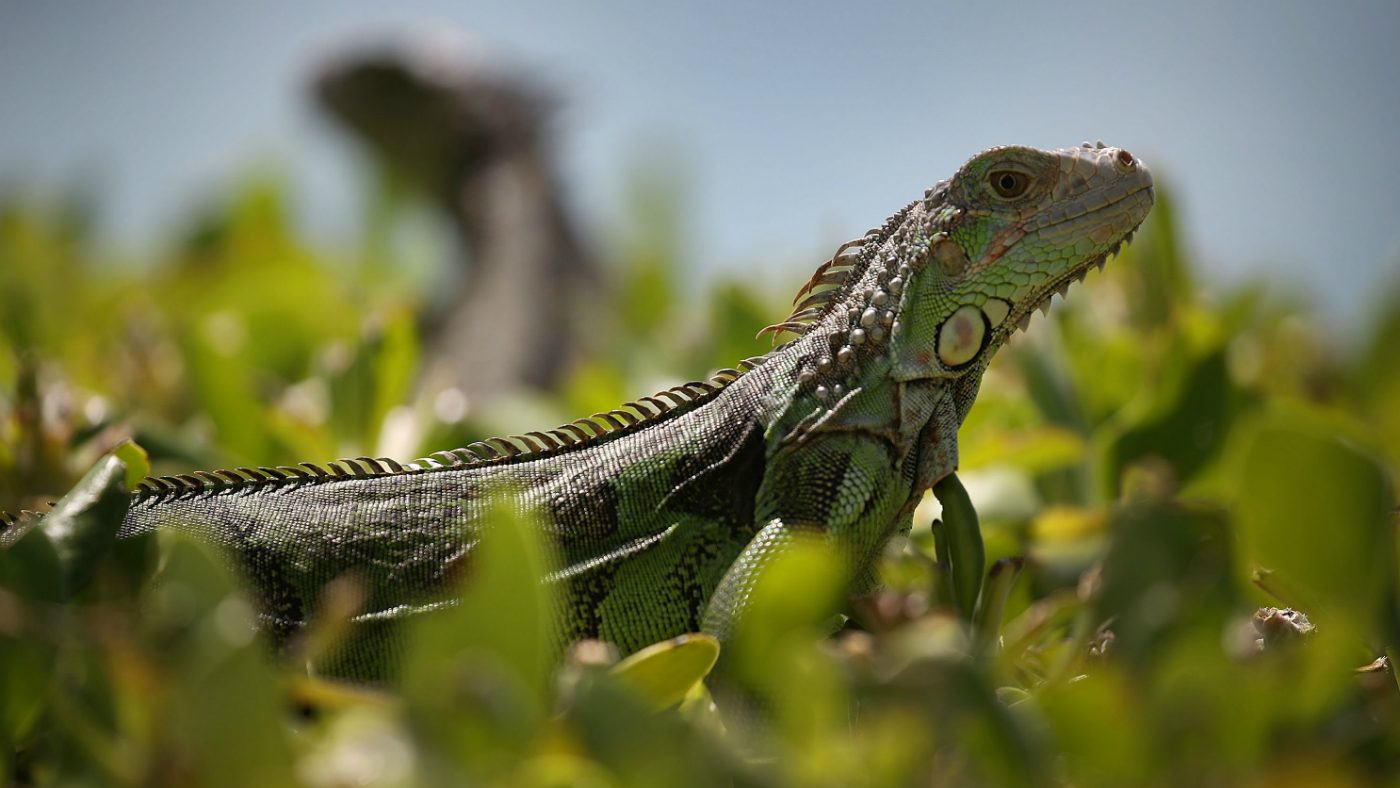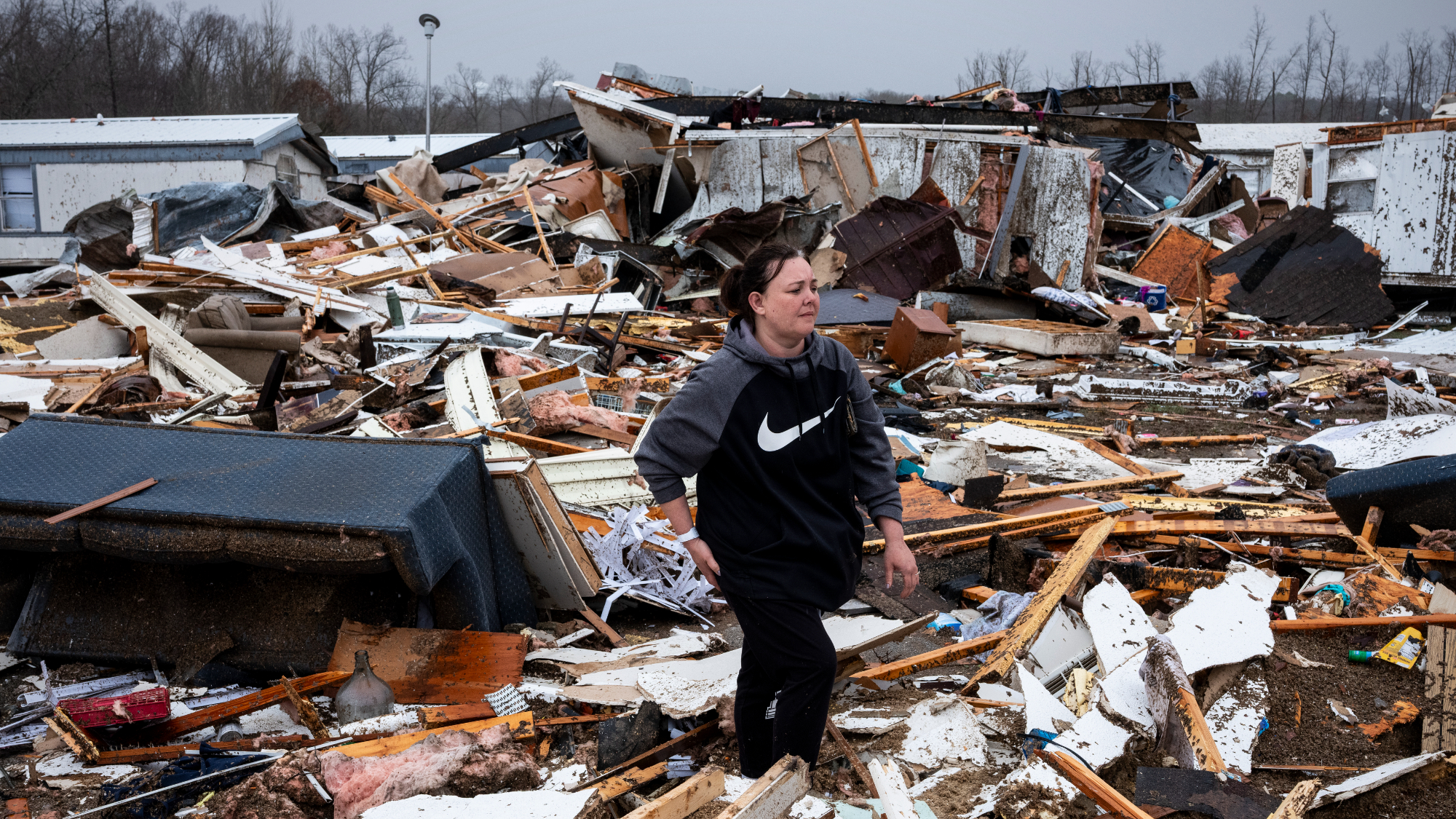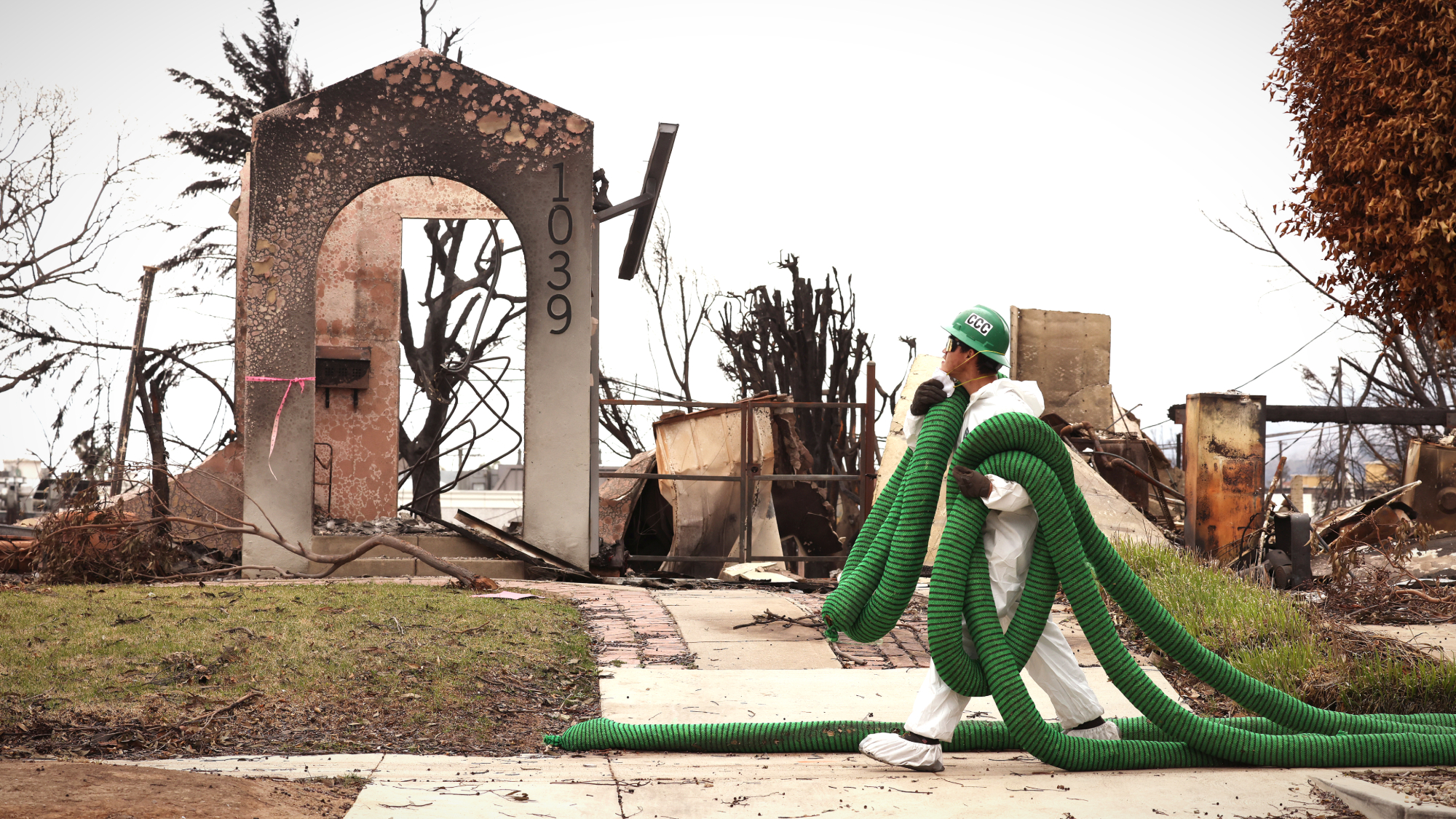Why it’s raining frozen iguanas in Florida
National Weather Service warns of reptiles dropping out of trees as temperatures plummet

A free daily email with the biggest news stories of the day – and the best features from TheWeek.com
You are now subscribed
Your newsletter sign-up was successful
Pedestrians in south Florida are facing an unusual hazard following a cold snap in the region - falling frozen iguanas.
As The Guardian reports, iguanas are “susceptible to freezing once temperatures drop to around 40F (4.44C)”, and “when frozen, these cold-blooded creatures lose their grip on the cosy trees they call home and slip”.
The US National Weather Service (NWS) issued a warning about the falling reptiles on Tuesday evening, as well as a wind chill advisory for the southern part of the state.
The Week
Escape your echo chamber. Get the facts behind the news, plus analysis from multiple perspectives.

Sign up for The Week's Free Newsletters
From our morning news briefing to a weekly Good News Newsletter, get the best of The Week delivered directly to your inbox.
From our morning news briefing to a weekly Good News Newsletter, get the best of The Week delivered directly to your inbox.
“Don’t be surprised if you see iguanas falling from the trees tonight as lows drop into the 30s and 40s,” the NWS tweeted. “Brrrr!”
According to The New York Times, “watching lizards seemingly fall out of the sky is nothing new for Floridians, many of whom are used to seeing the reptiles drop from trees when the temperature dips”.
“They literally shut down, and they can no longer hold on to the trees,” Ron Magill, communications director for Zoo Miami, told newspaper following a similar “downpour” in 2018.
Iguanas can reach 5ft in length and weigh up to 1st 6lb (9kg), so it “can be dangerous if one lands on top of you”, says CNN.
A free daily email with the biggest news stories of the day – and the best features from TheWeek.com
But freezing solid may not be fatal for the reptiles, which sometimes return to life after conditions warm up.
“Even if they look dead as a doornail - they’re grey and stiff - as soon as it starts to heat up and they get hit by the sun rays, it’s this rejuvenation,” Magill said. “The ones that survive that cold streak are basically passing on that gene.”
However, “not everyone is concerned about the well-being of these iguanas”, adds CNN, which explains that they are “considered an invasive species, so some people are looking forward to an opportunity to rid their yards of these reptiles”.
–––––––––––––––––––––––––––––––For a round-up of the most important stories from around the world - and a concise, refreshing and balanced take on the week’s news agenda - try The Week magazine. Start your trial subscription today –––––––––––––––––––––––––––––––
-
 5 blacked out cartoons about the Epstein file redactions
5 blacked out cartoons about the Epstein file redactionsCartoons Artists take on hidden identities, a censored presidential seal, and more
-
 How Democrats are turning DOJ lemons into partisan lemonade
How Democrats are turning DOJ lemons into partisan lemonadeTODAY’S BIG QUESTION As the Trump administration continues to try — and fail — at indicting its political enemies, Democratic lawmakers have begun seizing the moment for themselves
-
 ICE’s new targets post-Minnesota retreat
ICE’s new targets post-Minnesota retreatIn the Spotlight Several cities are reportedly on ICE’s list for immigration crackdowns
-
 Earth's seasons are out of whack
Earth's seasons are out of whackUnder the radar The seasons' unfixed nature in different regions of the planet may have impacted biodiversity and evolution
-
 When does autumn begin?
When does autumn begin?The Explainer The UK is experiencing a 'false autumn', as climate change shifts seasonal weather patterns
-
 Tuvalu is being lost to climate change. Other countries will likely follow.
Tuvalu is being lost to climate change. Other countries will likely follow.Under the Radar Sea level rise is putting islands underwater
-
 Europe's heatwave: the new front line of climate change
Europe's heatwave: the new front line of climate changeIn the Spotlight How will the continent adapt to 'bearing the brunt of climate change'?
-
 Why the weather keeps getting 'stuck'
Why the weather keeps getting 'stuck'In the Spotlight Record hot and dry spring caused by 'blocked' area of high pressure above the UK
-
 Severe storms kill dozens across central US
Severe storms kill dozens across central USSpeed Read At least 40 people were killed over the weekend by tornadoes, wildfires and dust storms
-
 Rain helps Los Angeles wildfires, risks mudslides
Rain helps Los Angeles wildfires, risks mudslidesSpeed Read The weather provided relief for crews working to contain wildfires, though rain over a burn area ups the chances of flooding and mudslides
-
 Fast-spreading Los Angeles wildfires spark panic
Fast-spreading Los Angeles wildfires spark panicSpeed Read About 30,000 people were under an evacuation order as the inferno spread